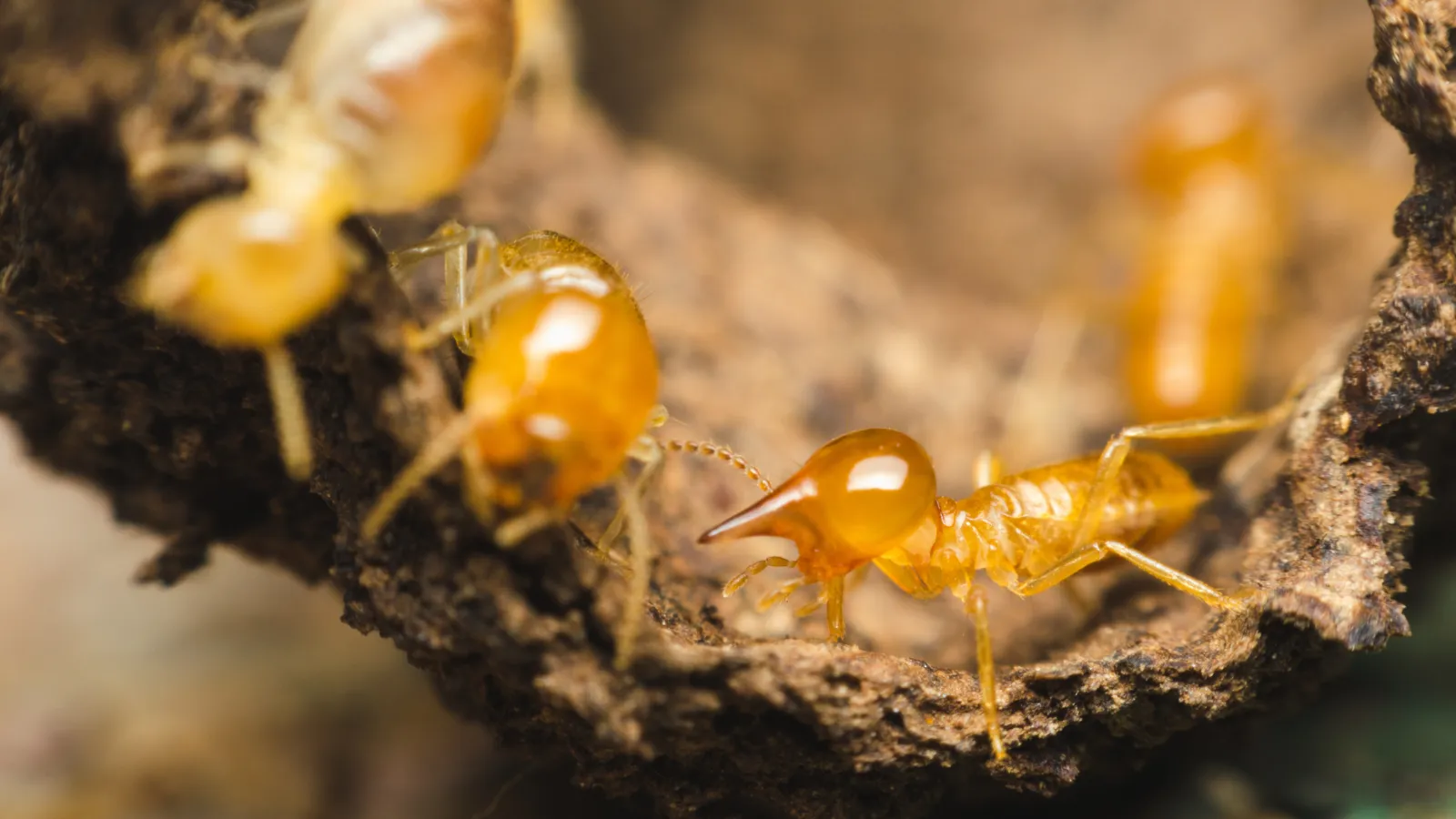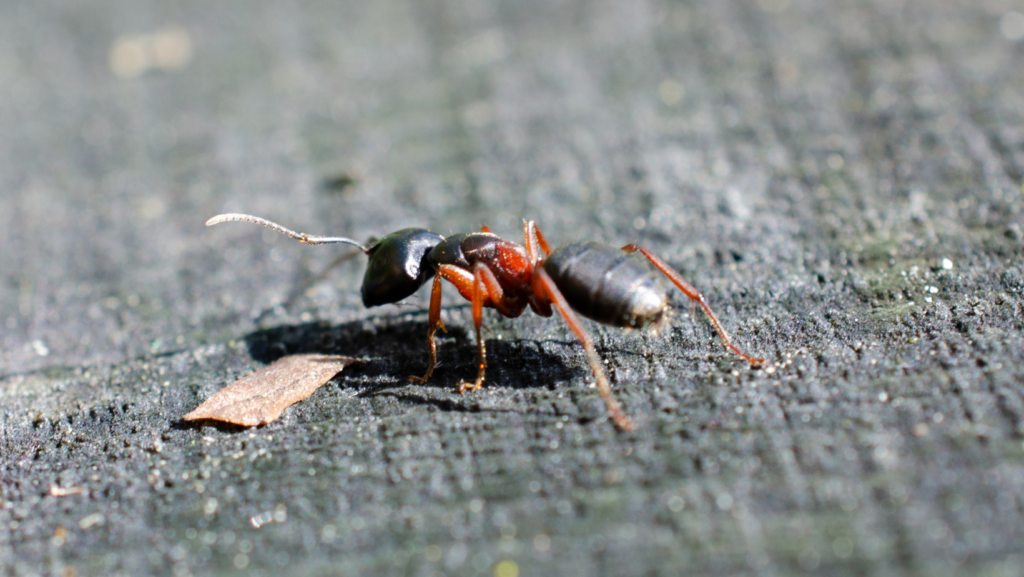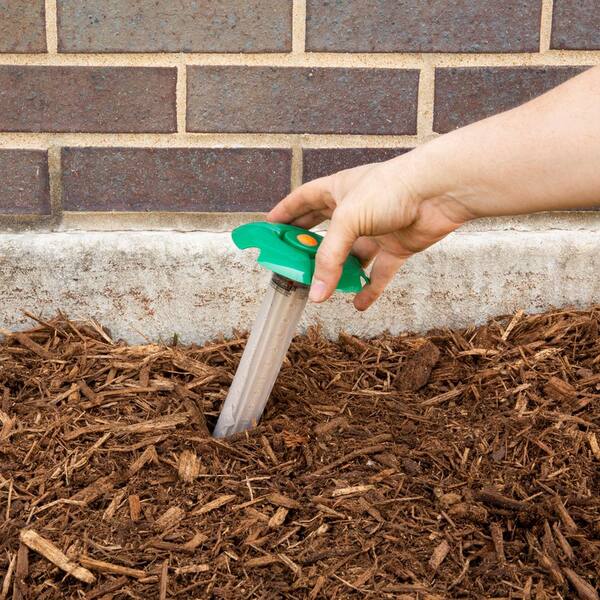Advanced Termite Control: Proven Techniques for Getting Rid Of Termite Infestations
Wiki Article
Environmental Influence of Bug Control: Balancing Efficiency With Sustainability
The ecological effect of bug control is a crucial problem that needs a delicate balance between attaining effectiveness in taking care of pests and guaranteeing sustainability of our environments. From the use of dangerous chemicals that leak right into our soil and water to the unplanned repercussions on non-target varieties, the consequences of conventional insect control practices are far-ranging.Damaging Chemicals in Pest Control
The use of dangerous chemicals in insect control poses substantial ecological and wellness risks that warrant cautious factor to consider and reduction techniques. Pesticides, herbicides, and chemicals are typically used to eliminate pests, however their prevalent application can lead to unintended repercussions. These chemicals can infect soil, water resources, and the air, influencing not just the targeted parasites yet likewise valuable bugs, wildlife, and humans.
To resolve these threats, incorporated bug monitoring (IPM) strategies are being advertised as an extra sustainable option. IPM entails a combination of approaches such as organic control, habitat manipulation, and the targeted use of chemicals as a last hotel (ant control mooresville nc). By taking on an all natural strategy to pest control, we can lessen the environmental and health influences related to dangerous chemicals while successfully managing pest populaces
Effect On Non-Target Species
Taking into consideration the unplanned effects of insect control methods, the influence on non-target species is a critical facet that needs extensive evaluation. While bug control steps intend to target particular pests, various other organisms in the ecological community may be accidentally affected. Non-target types, including advantageous pests, birds, mammals, and also plants, can endure indirect or straight harm from pesticide applications or biological control approaches.Pesticides designed to fight a specific bug parasite might damage pollinators like or all-natural predators such as ladybugs. Biological control representatives, if not species-specific, can posture threats to unintended targets, disrupting the environmental balance.
To alleviate the influence on non-target varieties, incorporated parasite monitoring (IPM) approaches that stress an all natural approach to pest control are recommended. These approaches focus on the usage of eco-friendly methods, lessening damage to beneficial microorganisms while properly handling pest populations. Carrying out complete danger assessments and keeping an eye on the results of pest control efforts are vital steps in safeguarding non-target varieties and advertising overall ecosystem health.
Dirt and Water Contamination
Unplanned environmental effects of insect control approaches extend beyond influencing non-target species, with considerable effects for soil and water contamination - ant control. Chemicals, herbicides, and chemical plant foods utilized in pest control can leach right into the dirt and infect groundwater, presenting a hazard to both terrestrial and aquatic ecological communities.Water contamination is another critical issue associated with pest control practices. To mitigate dirt and water contamination from bug control activities, integrated bug administration methods that prioritize sustainability and minimize chemical inputs are crucial.
Air Air Pollution From Chemical Usage
Exposure to airborne chemicals during farming applications presents a substantial concern for air pollution control actions. They can volatilize right into the air and type volatile natural compounds (VOCs) and various other air-borne contaminants when pesticides are splashed onto crops - termite control. These chemicals can add to the formation of ground-level ozone, a significant part of smog that can have detrimental results on human health and wellness, plant efficiency, and general air high quality. In addition, pesticide drift, where chemicals are brought by the wind to unplanned areas, can cause the contamination of close-by ecological communities and water bodies.
Methods for Lasting Insect Control
In the world of farming techniques, implementing sustainable insect control methods is extremely important for maintaining environmental equilibrium and guarding plant returns. Lasting parasite control highlights the usage of eco pleasant approaches to take care of parasite populaces properly while reducing damage to non-target microorganisms and environments. Integrated Insect Administration (IPM) is an extensively taken on strategy that combines organic, social, physical, and chemical control approaches to attain long-lasting bug administration options.Plant rotation and diversity are also reliable techniques to interfere with pest life cycles and produce less desirable conditions for parasites to thrive. Eventually, by incorporating these sustainable pest control methods, farmers can achieve an equilibrium in between pest administration performance and environmental stewardship.
Verdict
Finally, the ecological impact of parasite control methods need to be carefully thought about to stabilize effectiveness with sustainability. Harmful chemicals made use of in pest control can cause dirt and water contamination, air pollution, and harm non-target types - ant control. It is important to implement sustainable insect control strategies to decrease these negative effects on the atmosphere and advertise a much healthier community for future generationsBy embracing an all natural strategy to pest control, we can minimize the environmental and health and wellness effects associated with unsafe chemicals while effectively managing pest populations.

To mitigate the air contamination caused by chemical usage, it is vital to adopt incorporated parasite monitoring techniques that focus on the use of non-chemical bug control approaches, such as crop turning, all-natural predators, and resistant crop selections. Lasting bug control stresses the usage of ecologically friendly methods to manage bug populaces successfully while lessening harm to non-target organisms and ecological communities. Integrated Pest Administration (IPM) is an extensively adopted method that integrates organic, cultural, physical, and chemical control techniques to attain long-term pest administration options.
Report this wiki page